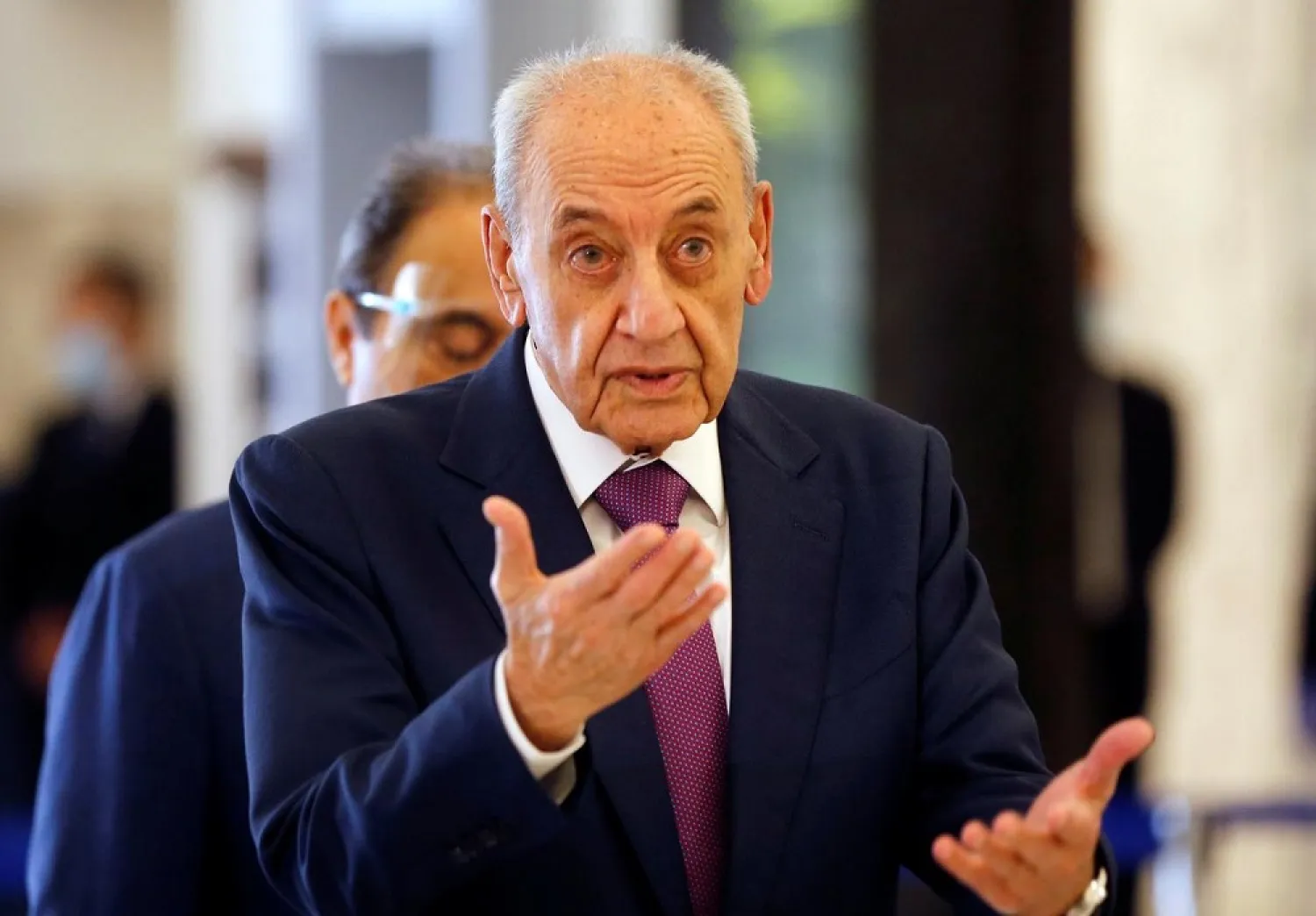The government of Lebanese Prime Minister Hassan Diab did not have another choice but to resign, according to parliamentary sources that spoke to Asharq Al-Awsat.
The sources said that President Michel Aoun contacted Speaker Nabih Berri, with whom he discussed the latter’s call for a parliamentary session to hold the government accountable for its failure to deal with the tragedy that struck Beirut as a result of the devastating explosion.
According to the sources, Aoun urged Berri to postpone the session to a later date, because holding it would overthrow the government; but Berri insisted on his position. A number of his visitors quoted him as saying: “We will not feel sorry for its resignation, because it should bear responsibility, instead of washing its hands of its negligence and blaming the parliament.”
When Aoun was unable to convince Berri, he suggested that the session be held at the Grand Serail instead of the Baabda presidential palace, because he refused to be the first witness of the government’s resignation, the sources told Asharq Al-Awsat.
Diab announced his resignation during a cabinet session at the Grand Serial on Monday evening, without holding prior consultations to discuss the alternatives, which raised concerns over an extended caretaking period.
The parliamentary sources saw that the resigned premier has deliberately engaged in a dispute with Berri, without realizing the size of the political dangers involved. They said that Diab gave himself the authority to overstep the speaker and suggest the shortening of parliament’s term.
They also accused Diab of trying to ease the popular campaigns against him, by holding the parliament responsible for negligence over the massive explosion in the port of Beirut.
Berri affirmed that the direct responsibility lied with the government, which has to bear the impact of the destruction that devastated Beirut, the speaker’s visitors revealed.









